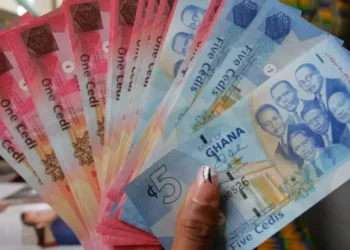South Africa’s state-owned freight rail and ports operator Transnet has posted a smaller financial loss for the year ending March, a sign that its turnaround efforts are beginning to show results. However, questions over the company’s long-term viability persist, as auditors and rating agencies remain cautious.
The company reported a loss of 1.9 billion rand ($108.18 million), sharply down from the 7.3 billion rand recorded in the previous financial year. The improved performance comes after years of operational struggles that have crippled South Africa’s exports of coal, iron ore, and other commodities. Mining giants such as Kumba Iron Ore and Thungela Resources have long complained of reduced revenues as a result of Transnet’s underperformance.
In its annual financial report, Transnet said revenue rose by 7.8% to 82.7 billion rand, while net operating expenses fell 4.9% to 52.1 billion rand. Freight rail, the company’s largest division, showed a modest recovery, hauling 160 million metric tons compared to 152 million tons the year before. Although this was a step forward, it still fell short of the 170 million-ton target set for the period.
Chief Executive Michelle Phillips struck an optimistic tone at a press briefing.
“The tide is beginning to turn. Revenue is rising, losses are narrowing, and volumes are stabilising. The foundations of recovery are taking hold.”
Michelle Phillips

Despite these improvements, South Africa’s auditor-general again flagged concerns in its review of Transnet’s financial statements. It warned of “material uncertainty … on the entity’s ability to continue as a going concern,” citing ongoing losses, covenant breaches, and credit downgrades.
Government Guarantees Secure Transnet’s Survival
Ratings agency S&P Global downgraded Transnet in July, saying its debt structure was unsustainable without “extraordinary government support.” In response, the government pledged billions of dollars in guarantees to prevent the company from defaulting. Phillips admitted that without this intervention, Transnet might have failed to meet its debt obligations.
Looking ahead, Transnet has set a goal of transporting 180 million tons of freight in the current financial year. A key pillar of its strategy is greater private-sector involvement in rail and port operations, which it has described as essential to reviving capacity and efficiency.
South Africa’s wider rail sector is also in the midst of sweeping reforms. The government has opened Transnet’s network to private operators under a public-private partnership model, hailed as a “historic and necessary step” to modernize logistics infrastructure.
In 2025, licenses were granted to 11 private firms to operate freight services. Authorities expect this to add 20 million tons of freight capacity by the 2026-27 financial year, contributing toward a national target of 250 million tons by 2029. Such growth is seen as vital to support South Africa’s mineral exports, including platinum, manganese, coal, and gold.
The government and Transnet have jointly invested more than R90 billion into railway infrastructure in 2025, drawing additional financial backing from lenders such as the African Development Bank and the New Development Bank. These funds are earmarked for major upgrades to rail and port facilities.
Infrastructure Reforms Aim To Boost Trade
Operational performance is stabilizing after years of steep decline, but challenges remain. Infrastructure decay and safety incidents, including derailments, continue to disrupt services. To address these problems, Transnet is collaborating with mining companies on maintenance priorities and modernization projects.
Meanwhile, parallel investments in passenger transport are underway. The Passenger Rail Agency of South Africa (PRASA) is procuring 1,200 new trains, with delivery expected by 2035 and a focus on local manufacturing. The Gautrain rapid transit network also has expansion plans, reinforcing a broader long-term vision for integrated rail transport.
South Africa’s railway reforms mark a decisive shift in strengthening a vital economic artery. By combining government guarantees, private investment, and strategic modernization, the country is seeking to restore confidence in its logistics sector. The outcome will play a pivotal role in securing economic growth and ensuring the efficient movement of minerals and goods across borders.


















